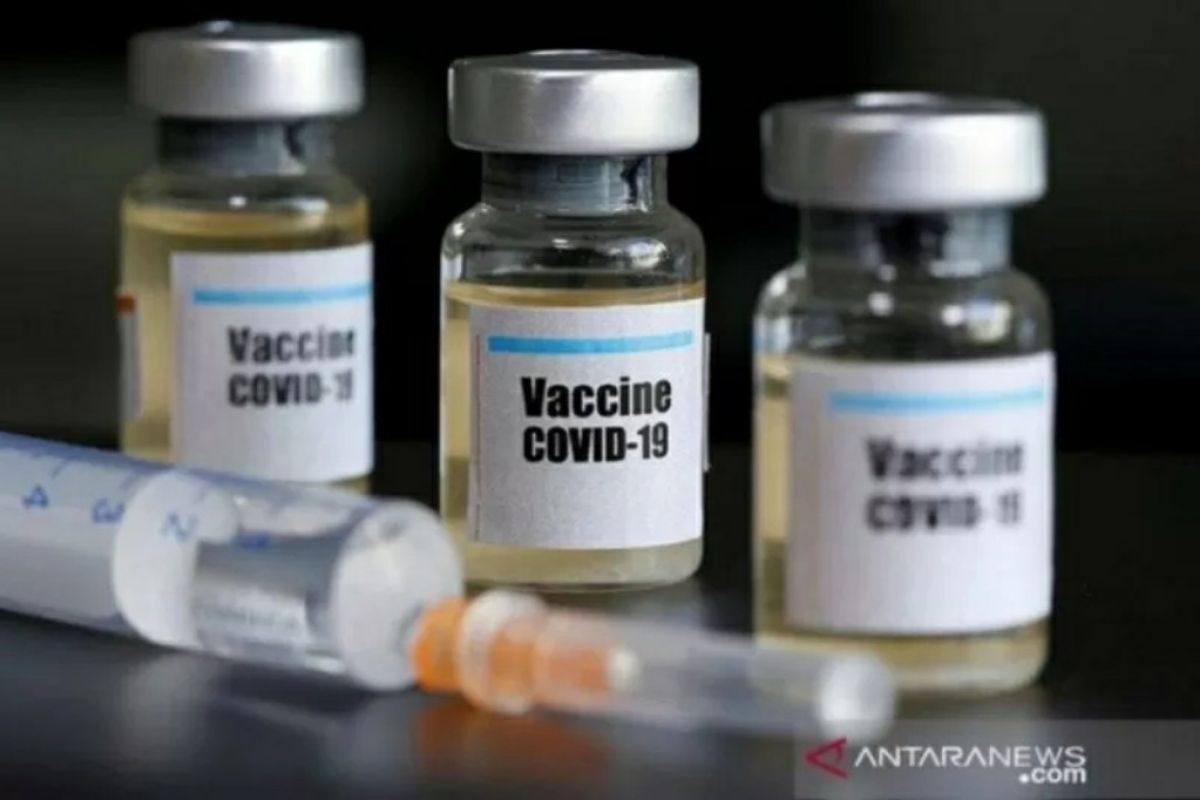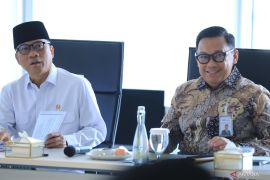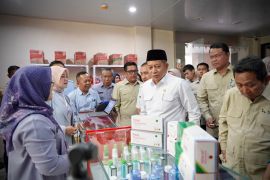Among those who have succumbed to the coronavirus which causes COVID-19 are doctors and paramedics fighting on the frontlines of the country's war against the pandemic.
As of August 21, 2020, as many as 86 doctors have died of COVID-19, the Indonesian Medical Association (IDI) has been quoted by local media outlets as saying.
The novel coronavirus disease, which initially struck the Chinese city of Wuhan in December, 2019 and then spread to at least 213 countries, has become a global pandemic, threatening the lives of millions of people.
According to Worldometer, 24,655,052 people around the world had been infected with COVID-19 as of August 28, 2020, and of the total figure, 836,143 patients had succumbed to the virus, while 17,114,130 others had reported a recovery.
From the beginning, the coronavirus, which has triggered public health and economic crises in many affected nations, has been transmitting between humans. This means anybody can be infected with the virus.
In April this year, many global media outlets had reported that British Prime Minister Boris Johnson had been moved to an intensive care unit in the United Kingdom after his coronavirus symptoms worsened.
In Indonesia, acting head of East Java's Sidoarjo district, Nur Ahmad Syaifudin, 57, passed away on August 22, 2020 after being hospitalized with suspected COVID-19 symptoms. Director of the Sidoarjo Public Hospital, Atok Irawan, stated that Syaifudin had been diagnosed with pneumonia and advised to get hospitalized.
However, Syaifudin, who was scheduled to attend a plenary session with members of the district's legislative body, had requested Irawan to prescribe him medicines instead.
He died two days later after being rushed to the hospital.
Considering the above reality, people at large must remain aware of what they can contribute to the nation's collective endeavors to win the battle against the virus. Active participation from the people is crucial for winning the battle. This participation only involves observance of preventive measures mandated by the health protocols, such as wearing face masks and maintaining physical distancing.
Like many other countries, Indonesia is leaving no stone unturned to develop a vaccine to fight COVID-19.
Currently, in addition to China-based Sinovac’s COVID-19 vaccine, which has entered Phase III clinical trials in Bandung, West Java, Indonesian scientists are working on a vaccine named after the country's national flag — Merah Putih (Red and White).
The discovery of the COVID-19 vaccine in early 2021 may enable Indonesia's economy to recover at the latest by mid-2021, according to Iman Sugema, a senior economist with the Institute for Development of Economics and Finance (Indef).
"Economic recovery really relies on how immediate the discovery of the COVID-19 vaccine is. If it can be reached on time, Indonesia's economy will rebound in mid-2021," Sugema predicted.
In the wake of the pandemic, the Indonesian economy had contracted 5.32 percent in the second quarter of this year.
Speaking at a discussion organized by Indef in Jakarta on August 25, 2020, the economist remarked that the discovery of the novel coronavirus vaccine is, therefore, key to responding to the major impacts of the pandemic.
Availability of the COVID-19 vaccine would offer certainty to businesspersons and the industrial sector to revive production as the demand from consumers would also start growing, he noted.
"If the handling of this COVID-19 pandemic gets protracted, more companies will encounter difficulties, and the economic recovery process will also become more challenging," he added.
However, if the COVID-19 pandemic is handled properly, Sugema projects Indonesia's economic growth would likely exceed the 5.02 percent recorded in 2019.
Indef had earlier forecast that Indonesia's economic performance in 2021 would really depend on the improvements that it makes in 2020.
At the end of 2020, Indef has projected that Indonesia's economic growth rate would be between minus 0.53 percent and minus 0.14 percent, if the absorption of expenditure from the fiscal stimulus reaches at least 60 percent.
Hence, Indef has expressed the belief that Indonesia's economic growth in 2021 could reach between 2.54 percent and 3.77 percent, which is lower than the government's forecast of 4.5-5.5 percent growth.
Regarding the availability of the COVID-19 vaccine, Coordinating Minister for Economic Affairs Airlangga Hartarto has revealed that Indonesia aims to obtain 30 million doses of the vaccine produced by PT Bio Farma by the end of 2020.
"We are optimistic that by the end of this year, we will have access to 30 million doses of the vaccine produced at Bio Farma. This is the foremost initiative," he stated at an online discussion this week.
The availability of COVID-19 vaccines is undoubtedly important for Indonesia’s successful handling of the virus and bringing about an economic revival. In this context, Indonesia needs to be able to produce its own vaccine to meet its own people's demand. (INE)
Related news: Finance minister stresses on hard work to attain zero-percent growth
Related news: Government lowers growth forecast for 2020
EDITED BY INE
Editor: Suharto
Copyright © ANTARA 2020












